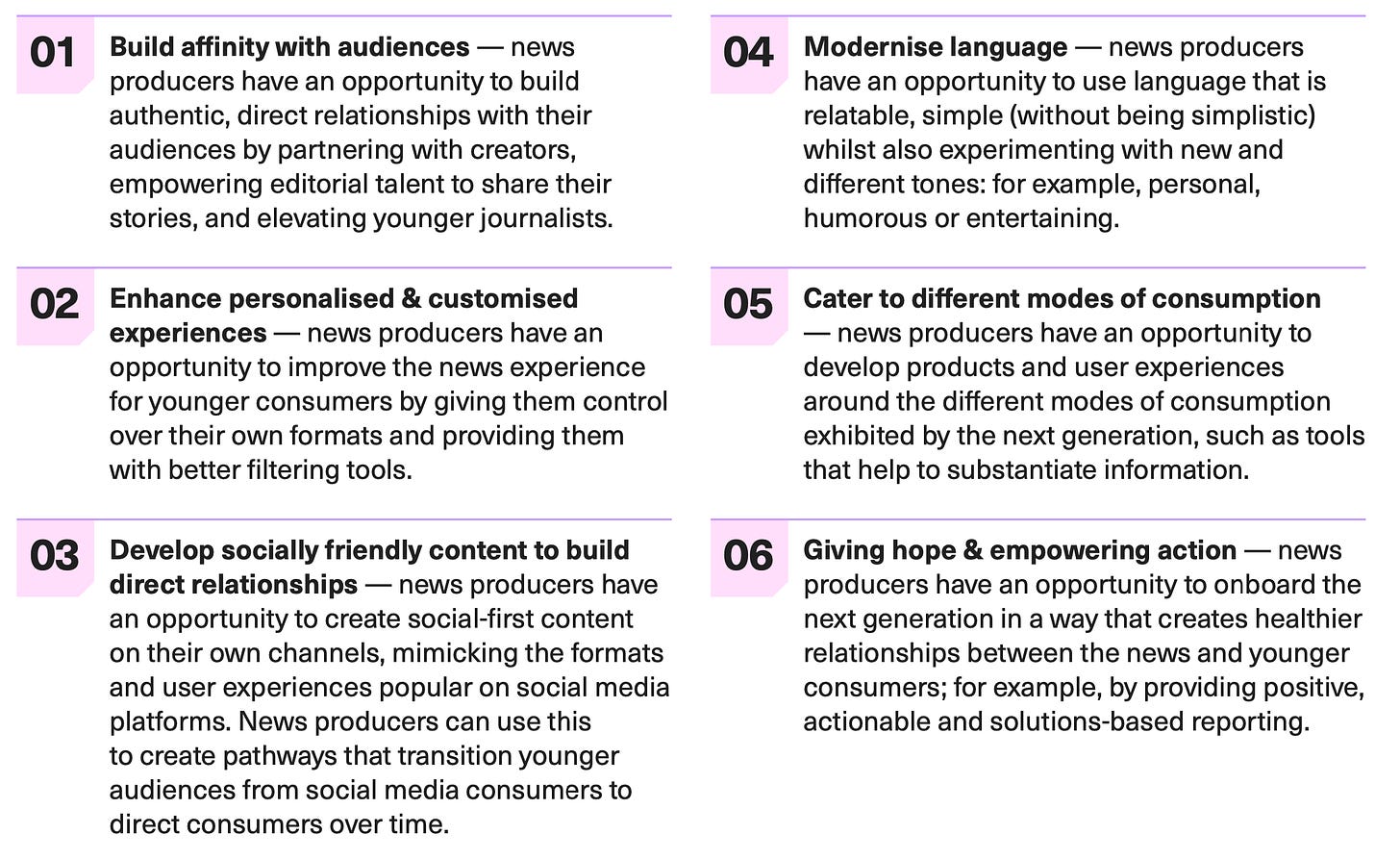Welcome to our April newsletter! Firstly, we have a minor administrative announcement: our newsletter will likely have a different appearance next month as we're transitioning to a new platform. Substack now requires users to create an account to access a hidden newsletter like ours, and we find this inconvenient. Therefore, next month's newsletter will be in a different format, but rest assured, you will still receive it.
Now, let's delve into the main content of this newsletter, where we'll discuss the significant developments at C.Tru over the past weeks and share insightful findings from the Next Gen report by FT Strategies.
Our challenge
This month, we've initiated a collaboration with Team5PM, a content agency based in Amsterdam specializing in developing video content strategies. They will be mapping out various segments of social natives for us and identifying the types of content they prefer consuming on different platforms. Based on their research, we'll determine which segments we can engage with through our journalism.
Furthermore, we've gained additional insights into social natives with the assistance of bachelor's and master's students from Vrije Universiteit Amsterdam. Over the past few months, they conducted research on the willingness of young people to pay for news and their perception of journalism's role in society. They presented their findings to us at the end of March. The key takeaways were that young people endorse journalistic values such as reliability and transparency. Unfortunately, it was also revealed once again that the willingness of young people to pay for journalism remains very low, with 90 percent stating they do not want to pay for news.
These two pieces of data clearly highlight our challenge: young people are interested in journalism and recognize its value to society, but evidently, it's not being presented to them in a way that they find valuable. While there are revenue models that don't require a direct payment relationship, our focus remains on creating value for young people, and that's where our challenge lies.
We must strive to deliver the best possible news experience for young people, and we found some interesting insights in the Next Gen News report by FT Strategies. Based on their research, they've outlined an ideal news experience for young people with eight characteristics:
The research indicates that the new generation of news consumers is not adequately served by the current ecosystem of news organizations in meeting their information needs. To address these needs, organizations can take six actions, according to the researchers:
The approach
We were encouraged in our approach by the research, particularly our focus on human-to-human interactions. While individual creators aren't necessarily perceived as better or more reliable by young people, they are when they connect with their audience. Life experience can also influence the journalism individual creators produce, as long as it's transparent. Our focus on the information ecosystem of young people is also reflected: they seem to struggle with, on one hand, the convenience of consuming information via social media, but also have a need for thoughtful, slow productions—especially those who aren't very interested in news.
We observe a similar approach in publications like Brut and TLDR, suggesting there are indeed opportunities in providing balanced explanations of issues around specific themes. A recent success at The Guardian seems to support this notion: their newsletter on improving your relationship with your smartphone is thriving. They've never witnessed such growth before. A newsletter addressing a specific problem that resonates with the audience—it's actually quite simple. Read the article from NiemanLab about the success here.
That wraps up this month's newsletter! Don't hesitate to reach out if you have any questions or just want to get to know us better! You can either e-mail Christopher or myself (Sophie)!
And did you read Danuta’s piece from last month on why young people prefer social over search for information gathering. We think it’s very insightful!






